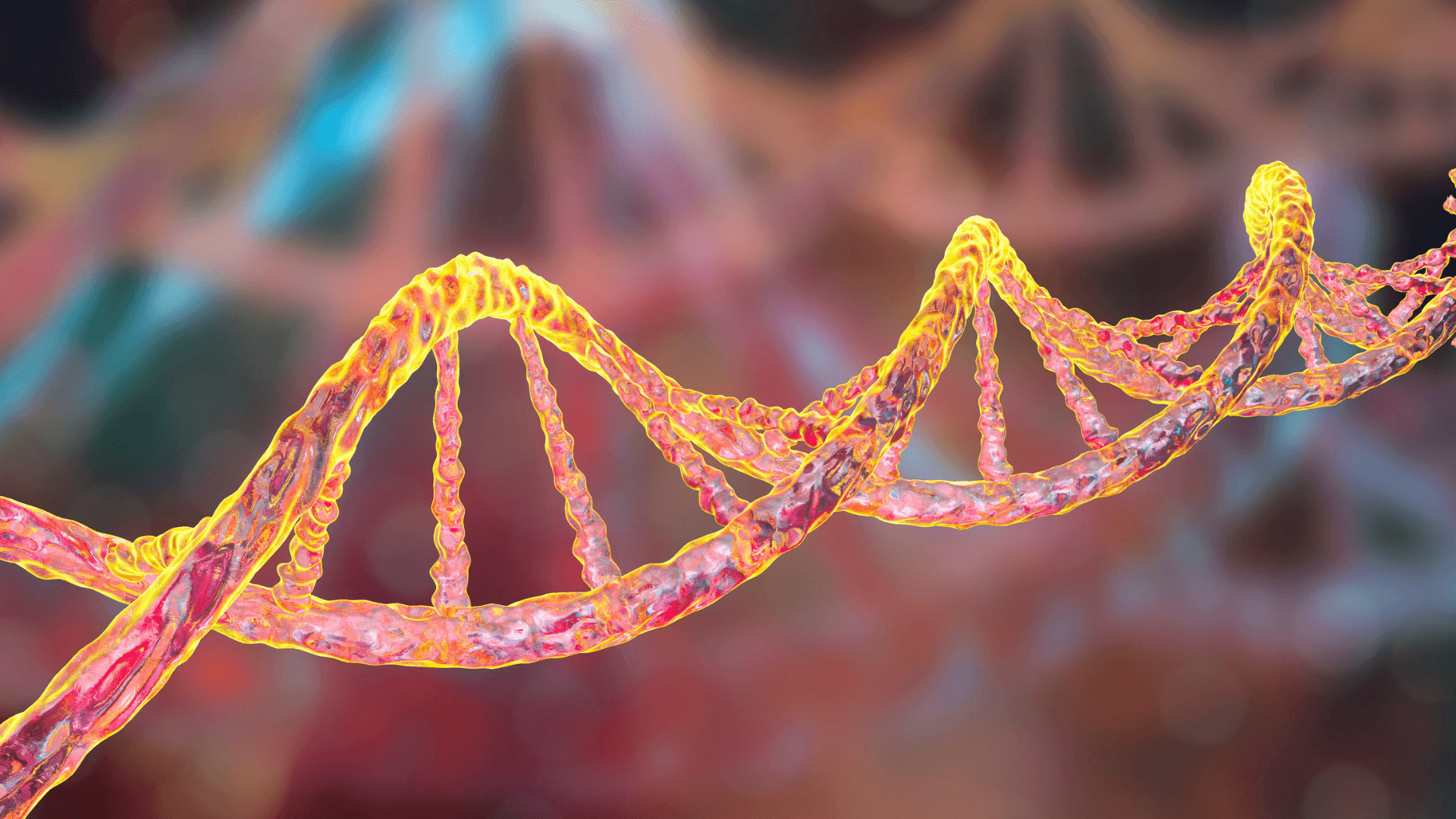Study Reveals Human Microbiome is Highly Individualized
Study Reveals Human Microbiome is Highly Individualized
Study Reveals Human Microbiome is Highly Individualized
Sep 2, 2024
Sep 2, 2024
Sep 2, 2024

Illustrative image. Credit: Getty Images via Canva.
Illustrative image. Credit: Getty Images via Canva.
Illustrative image. Credit: Getty Images via Canva.
A new study reveals that the human microbiome, made up of trillions of microorganisms, is highly individualized, varying significantly from person to person. These findings open doors for personalized health treatments and new approaches to combating diseases.
A new study reveals that the human microbiome, made up of trillions of microorganisms, is highly individualized, varying significantly from person to person. These findings open doors for personalized health treatments and new approaches to combating diseases.
A new study reveals that the human microbiome, made up of trillions of microorganisms, is highly individualized, varying significantly from person to person. These findings open doors for personalized health treatments and new approaches to combating diseases.
A study led by scientists at Stanford University has revealed that the human microbiome – the collection of microorganisms that inhabit the body – is highly individualized, and each person's specific bacteria are the most stable over time. The research followed 86 participants for up to six years, showing that this unique microbial community is essential for health, while changes in the microbiome are linked to infections and chronic diseases.
Individualized Microbiome
The research showed that each person has a distinct microbiome, with certain unique bacteria that are more stable than those shared among individuals. "No two microbiomes are alike," says Michael Snyder, a professor of Genetics at Stanford and the study's lead author. The scientists found that these differences vary from person to person and are also shaped by factors such as diet, environment, and immune system, creating a unique microbial signature for each individual.
Microbiome and Health
One of the study's most remarkable findings is the relationship between microbiome stability and overall health. When a person's microbiome remains stable, it generally indicates a healthy state. On the other hand, changes in the microbiome, especially in the gut, have been associated with infections, inflammation, and chronic diseases like type 2 diabetes. Individuals with this condition, for example, showed significantly less stable microbiomes, suggesting a connection between microbial dysfunction and the development of diseases.
Long-Term Study
To reach these conclusions, the researchers collected thousands of microbiome samples from the gut, mouth, skin, and nose of the 86 participants over six years. The study allowed scientists to observe how these populations of microorganisms changed in response to health events and environmental factors.
During respiratory infections, for example, the microbiome of the respiratory tract changed, and these alterations were also observed in other parts of the body, such as the gut and skin, suggesting a coordinated immune response.
No "Ideal Microbiome"
One of the study's most innovative aspects was challenging the idea that there is a "standard" or ideal microbiome for everyone. The study reinforces that each person's microbial composition is highly individualized, and what is considered healthy for one person may not necessarily be healthy for another. "Microbiological health is relative and depends on various factors such as diet, lifestyle, and environmental interactions," Snyder emphasized.
Impact on Health
The study's results highlight that an individualized microbiome affects metabolic and immune health. This unique microbial community helps regulate the immune system, directly influencing how the body responds to pathogens and inflammation. Moreover, the research suggests that, instead of aiming for a universal ideal microbiome, health approaches should focus on supporting each individual's microbial diversity and stability.
—
Want to learn more about how this study could impact future research? Check out the full study and the article that inspired this piece.
A study led by scientists at Stanford University has revealed that the human microbiome – the collection of microorganisms that inhabit the body – is highly individualized, and each person's specific bacteria are the most stable over time. The research followed 86 participants for up to six years, showing that this unique microbial community is essential for health, while changes in the microbiome are linked to infections and chronic diseases.
Individualized Microbiome
The research showed that each person has a distinct microbiome, with certain unique bacteria that are more stable than those shared among individuals. "No two microbiomes are alike," says Michael Snyder, a professor of Genetics at Stanford and the study's lead author. The scientists found that these differences vary from person to person and are also shaped by factors such as diet, environment, and immune system, creating a unique microbial signature for each individual.
Microbiome and Health
One of the study's most remarkable findings is the relationship between microbiome stability and overall health. When a person's microbiome remains stable, it generally indicates a healthy state. On the other hand, changes in the microbiome, especially in the gut, have been associated with infections, inflammation, and chronic diseases like type 2 diabetes. Individuals with this condition, for example, showed significantly less stable microbiomes, suggesting a connection between microbial dysfunction and the development of diseases.
Long-Term Study
To reach these conclusions, the researchers collected thousands of microbiome samples from the gut, mouth, skin, and nose of the 86 participants over six years. The study allowed scientists to observe how these populations of microorganisms changed in response to health events and environmental factors.
During respiratory infections, for example, the microbiome of the respiratory tract changed, and these alterations were also observed in other parts of the body, such as the gut and skin, suggesting a coordinated immune response.
No "Ideal Microbiome"
One of the study's most innovative aspects was challenging the idea that there is a "standard" or ideal microbiome for everyone. The study reinforces that each person's microbial composition is highly individualized, and what is considered healthy for one person may not necessarily be healthy for another. "Microbiological health is relative and depends on various factors such as diet, lifestyle, and environmental interactions," Snyder emphasized.
Impact on Health
The study's results highlight that an individualized microbiome affects metabolic and immune health. This unique microbial community helps regulate the immune system, directly influencing how the body responds to pathogens and inflammation. Moreover, the research suggests that, instead of aiming for a universal ideal microbiome, health approaches should focus on supporting each individual's microbial diversity and stability.
—
Want to learn more about how this study could impact future research? Check out the full study and the article that inspired this piece.
A study led by scientists at Stanford University has revealed that the human microbiome – the collection of microorganisms that inhabit the body – is highly individualized, and each person's specific bacteria are the most stable over time. The research followed 86 participants for up to six years, showing that this unique microbial community is essential for health, while changes in the microbiome are linked to infections and chronic diseases.
Individualized Microbiome
The research showed that each person has a distinct microbiome, with certain unique bacteria that are more stable than those shared among individuals. "No two microbiomes are alike," says Michael Snyder, a professor of Genetics at Stanford and the study's lead author. The scientists found that these differences vary from person to person and are also shaped by factors such as diet, environment, and immune system, creating a unique microbial signature for each individual.
Microbiome and Health
One of the study's most remarkable findings is the relationship between microbiome stability and overall health. When a person's microbiome remains stable, it generally indicates a healthy state. On the other hand, changes in the microbiome, especially in the gut, have been associated with infections, inflammation, and chronic diseases like type 2 diabetes. Individuals with this condition, for example, showed significantly less stable microbiomes, suggesting a connection between microbial dysfunction and the development of diseases.
Long-Term Study
To reach these conclusions, the researchers collected thousands of microbiome samples from the gut, mouth, skin, and nose of the 86 participants over six years. The study allowed scientists to observe how these populations of microorganisms changed in response to health events and environmental factors.
During respiratory infections, for example, the microbiome of the respiratory tract changed, and these alterations were also observed in other parts of the body, such as the gut and skin, suggesting a coordinated immune response.
No "Ideal Microbiome"
One of the study's most innovative aspects was challenging the idea that there is a "standard" or ideal microbiome for everyone. The study reinforces that each person's microbial composition is highly individualized, and what is considered healthy for one person may not necessarily be healthy for another. "Microbiological health is relative and depends on various factors such as diet, lifestyle, and environmental interactions," Snyder emphasized.
Impact on Health
The study's results highlight that an individualized microbiome affects metabolic and immune health. This unique microbial community helps regulate the immune system, directly influencing how the body responds to pathogens and inflammation. Moreover, the research suggests that, instead of aiming for a universal ideal microbiome, health approaches should focus on supporting each individual's microbial diversity and stability.
—
Want to learn more about how this study could impact future research? Check out the full study and the article that inspired this piece.


















